It might be too early to make a judgement but it does appear that the only change recently in West Indies cricket has been the replacement of Julian Hunte by his former deputy Whycliffe Cameron as president of the West Indies Cricket Board (WICB).
Those who rejoiced that Hunte is no longer in charge of the region’s most popular sport might now be doing a double take, wondering if those tasked with the responsibility of electing the head of West Indies Cricket simply chose a younger version of Hunte.
In the context of the Guyana situation it was felt that Hunte supported the embattled Guyana Cricket Board (GCB) against the Guyana government in return for their two votes at the all important Annual General Meeting held March 27.
The associations and county boards that were not involved in the GCB elections, held in January, where Drubahadur was elected president, might have hoped that the new president would have, at the very least, intervened in the dispute.
So when it was announced that Cameron would be visiting Guyana hopes were high that the visit was simply not to see his Jamaica team oppose Guyana in a key fixture of the regional Super50 competition (where a semi-final berth was at stake for Guyana) but that the new WICB head honcho would address the concerns of those who have found themselves at odds with the GCB.
But, lo and behold at his press conference at the National Stadium at Providence, Cameron simply reiterated the WICB’s support for the present GCB in keeping with Hunte’s previous position that the WICB cannot endorse or approve government interference in the administration of cricket in Guyana or any other territory.
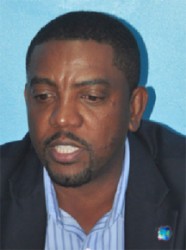
That approach leaves Guyana’s cricket at the crossroads. While there might not be any evidence to support it, there is a strong belief that the situation in Guyana where there is division among the area boards, contributed to the poor performance of the national team in the West Indies Four Day and Super50 tournaments. Simply put the situation with the Demerara Cricket Board and the GCB should not be allowed to continue for much longer.
The WICB said it has attempted to negotiate with the Guyana Government and the GCB in an effort to rectify the situation all to no avail.
The WICB said it offered to give advice to the government implemented IMC with the review and formation of a new constitution for the GCB and to provide financial resources to fund any forensic audit, necessary to ascertain whether there were any financial irregularities or improprieties. Those offers, they said were refused by the government.
“The WICB remains committed to lawful investigation into the Guyana Cricket Board or any other entity which is legitimately suspected by the proper authorities of engaging in untoward practices.
“The WICB cannot be party to or endorse any attempt to take over and/or manage cricket in Guyana by government,” a release from the WICB had stated.
That the two sides, the Government of Guyana and the WICB have been unable to come to a compromise and find a way to solving the dispute is surprising given the fact that FIFA came to Guyana and solved a long running dispute between the Guyana Football Federation and the Georgetown Football Association in two days, court case and all.
Last January, at the meeting between the Government of Guyana and the West Indies Cricket Board at the Caribbean Community (CARICOM) Secretariat, it was agreed that the Secretary-General would serve as facilitator/mediator in the discussions between the two parties aimed at breaking the impasse.
The two sides, however, failed to come to a compromise simply because the Government, maintained its position on the ruling of the Honourable Chief Justice (ag.), Mr Ian Chang, S.C., C.C.H., in the matter of Angela Haniff v. Ramsey Ali et al, inter alia, that the Guyana Cricket Board is a legal non-entity while the WICB stated that it does not support the dissolution of cricket boards by governments and maintained that there must be respect for the independence of cricket administrations.
Since then, the two sides have gone their separate ways. The government has gone ahead with its plans to table the new constitution arrived at by IMC Chairman Clive Lloyd in parliament while the GCB with the blessing of the WICB has gone about the business of the day-to-day administration of cricket in Guyana minus the participation of those boards who do not recognize its legitimacy.
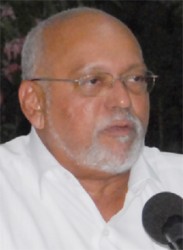
While he was here Cameron took the opportunity to meet with President Donald Ramotar, but the outcome of that meeting as it relates to settling the two-year long dispute has not been announced.
Instead, the Guyana Times newspaper reported the discussions between President Ramotar and Cameron as being “fruitful”.
It was also reported that Cameron said that President Ramotar had stated that he was willing to assist in resolving the matters affecting Guyana’s cricket. It did not say how.
One understands that both Cameron and President Ramotar were just being diplomatic in their responses to the questions posed to them and that is why to date there has been no further statement on the matter or improvement in the situation.
The West Indian public, though, is looking for more than cricket and political diplomacy. They want answers/ solutions to the many issues affecting cricket in the region which has resulted in the West Indies senior team being in the bottom tier of the ICC world rankings.
They would also like, I am sure, for the new WICB president to be a bit more forthcoming on issues.
Since being elected to office, territorial boards have been falling over themselves in an effort to congratulate the new president; a kind of sycophancy and certainly not the approach conducive to asking the WICB president they type of hard hitting questions that could lead to an improvement in the away the board is run.
Sport adminstrators in Third World countries such as Guyana lack the guts to question those in authority given the obvious repercussions.
As a result, straightforward answers to the burning issues facing the region’s cricket are most likely swept under the proverbial carpet.
Questions like, for example, what is being done with the low standard of regional cricket year-after-year and what is the present situation with WIPA concerning the new Memorandum of Agreement, or why is the WICB only to receive US$1.5m a year for its 20 year agreement with the Caribbean Premier League and whether the WICB will revisit the Patterson Committee and the Charles Wilkins reports will most likely not be asked, let alone answered.
But in the face of the WICB’s silence on major issues, the situation just keeps getting worse. Four day matches hardly last four days, there are a plethora of low scores, few century makers, a vast number of dropped catches and one can go on and on.
Former West Indies captain Brian Lara, one of, if not the greatest batsman to ever play the game, recently blamed regional administrators for the present state of West Indies cricket.
According to Lara in a report carried in the Trinidad Guardian, regional administrators must take responsibility for their shortcomings/failings before implementing the systems to develop structures that would enhance the team’s performance.
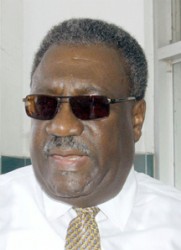
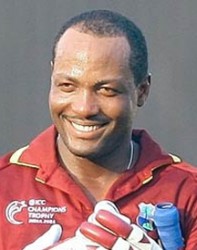
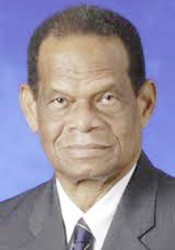
Lara was speaking on the topic Taking Charge at The Guardian Sport Desk’s four-day symposium held at the Cascadia Hotel and Conference Centre in St Ann’s, Port-of-Spain.
“It’s a difficult proposition for anybody to lead the West Indies team, especially with the administration how divided they are on occasions, the lobbying when trying to pick a board and many different things. It is an unreal situation for any young man to handle, especially during a bad time,” Lara said.
Lara also spoke of the tremendous talent of young cricketers in the region which is sometimes left unfullfilled.
“We take good talent in the West Indies and make it ordinary, while people abroad take ordinary talent and make it good. I still believe we have the best young cricketers in the world. Back in the ‘60s, ‘70s and ‘80s cricket was a skill game. Skill and fitness were very important towards performance and the West Indies cricketers were the most skilful team and the fittest, and they went around the world beating people,” he added.
According to Lara, when technology took over in the 1990’s there was no foundation laid by the administrators to ensure that regional cricket was keeping abreast with the times.
“We always thought a next ‘Sir Viv’ was around the corner; a Joel Garner was going to pop up. Yes! They did! But people learnt about West Indies cricket. People went back home, did studies and worked on us. That is when the decline started…the fact that we relied on natural talent and not advancing our game, not creating an infrastructure for grass-root cricket; not doing anything technology-wise to ensure that we are up there with the very best.”
This might be the honeymoon period for the new president of the WICB but soon the public will want answers to the many questions that surround the development of West Indies cricket as they will not be satisfied with such vague terms as “fruitful discussions,” or “issues will be resolved” without giving details on the discussions and exactly how the issues will be resolved.
Unless of course Cameron does not mind the public continuing to view the WICB as an “Old Boys Club” and a club which is definitely not interested in providing the transparency and accountability that he promised prior to his election.





